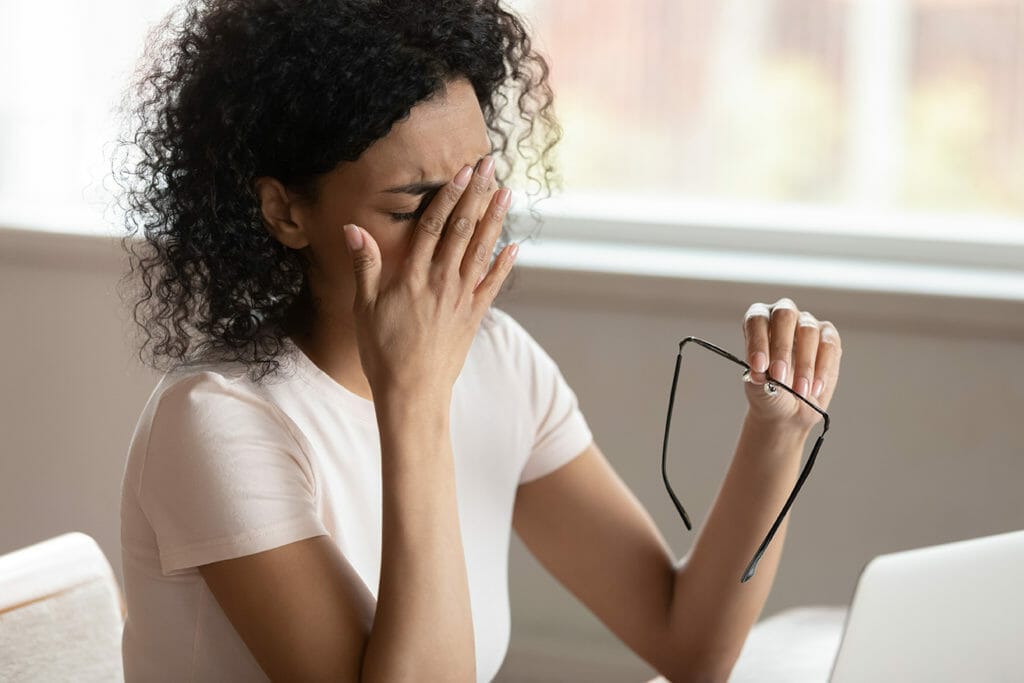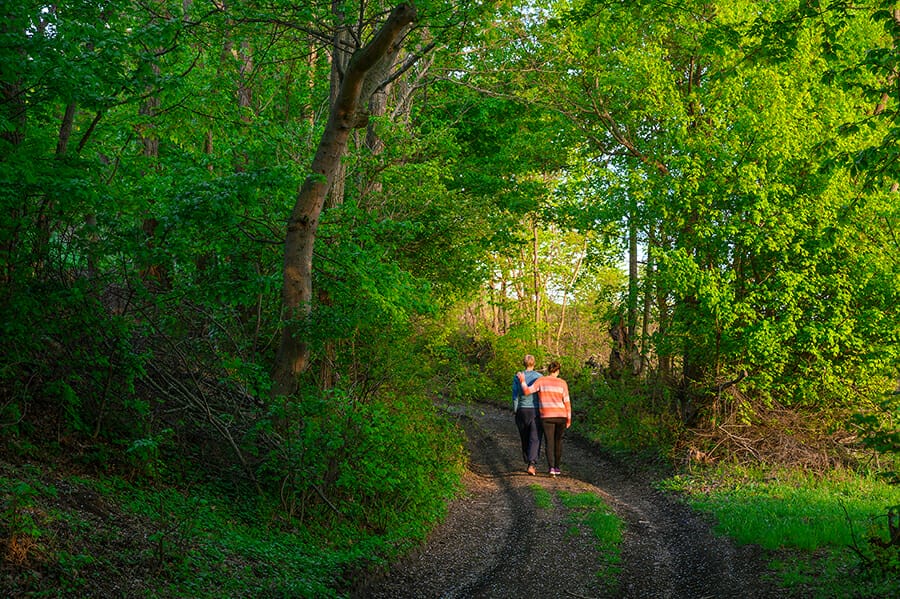Long COVID: What Can We Do About It?
Due to the coronavirus pandemic, there have been a number of new words and phrases that have entered our everyday language in the last year. This includes the term “Long COVID”, which describes the long-term health effects experienced after initial SARS-COV-2 infection and symptoms have subsided. According to a team of researchers at Kings College London around 1 in 7 people with symptomatic COVID-19 could be ill for at least 4 weeks, 1 in 20 for 8 weeks and 1 in 45 for 12 weeks or more. Though these stats are already changing as the epidemic fallout continues to unfold.
Long COVID symptoms are many and varied, including respiratory symptoms such as shortness of breath, as well as fatigue, joint and muscle pain, memory loss and brain fog, headaches and depression. Long COVID does not discriminate and seems to affect all age groups.

But chronic post-viral side effects are not unique to the SARS-COV-2 virus. Long COVID’s cluster of symptoms bears a strong similarity to myalgic encephalomyelitis or chronic fatigue syndrome (ME/CFS), as well as related conditions like Fibromylagia. These devastating conditions affect over a quarter of a million people in the UK (figures from before the pandemic) and are often caused, like long COVID, by a viral infection.
Having personally experienced two episodes of CFS in my life (one between the ages of 13-15 years and the 2nd encompassing several years of my mid and late 20s) I can speak first hand about the extreme debilitating fatigue and devastating impact all the symptoms have on your physical and mental health, as well as quality of life. But one of the worst parts was being told by numerous medics that my symptoms were psychosomatic and CFS simply didn’t exist.
A recent article in the Guardian describes how a study by the ME Association reveals that over 10 years, only £10m was spent in the UK on researching this syndrome: £40 per patient. By comparison, epilepsy research received £200 per patient, rheumatoid arthritis £320, and multiple sclerosis £800. Even today, some doctors refuse to believe sufferers, dismiss their symptoms or prescribe disproven and harmful treatments.
There’s no simple cure to post-viral conditions, and this is what baffles many clinicians and has led to labels such as “heart-sink patients” because these complex health cases are said to cause GP’s hearts to sink when they present in the practice. But I can speak from first-hand experience that with acknowledgement of the condition, and with an integrated health approach, improvement and recovery from post-viral fatigue syndromes is very real. I have been fully free of all post-viral symptoms for 14 years. Yes, it’s a long process and the time factor can be one of the most stressful and frustrating things about a post-viral recovery but, by using a functional medicine approach, my recovery was also one of the most transformative and empowering episodes of my life.
Below are some recommended areas to address within a post-viral recovery programme.

Support gut health
Our gut is key to all aspects of our health, from a fully functioning immune system to quality sleep and stable mood, as well as absorption of all the necessary micro and macronutrients.
- Eat a whole food diet featuring plenty of colourful vegetables, herbs and spices.
- Address allergens in the diet – ranging from gluten, dairy or whatever the source(s) this is a key to address.
- Reduce sugar and address caffeine and alcohol intake – anything that triggers an adrenal stress response is going to interfere with recovery.
- Include Prebiotic/probiotic foods; healthy fats (balance of omega 3/6); protein at every meal.
- Reduce processed foods and exposure to chemicals from the environment and food: buy natural and organic where possible.
You may also consider taking a good quality probiotic supplement alongside S. boulardii to replenish levels of healthy gut microbiota and support gut immunity.
Improve antioxidant status
Eating a diet featuring a diverse range of plant foods is key for your gut, immune system and antioxidant status. You may also supplement with extra Vitamin C and other antioxidants. Vitamin C in mixed ascorbate form is less acidic and better tolerated in cases of GI disturbances.

Zinc and selenium
These are crucial nutrients for immune health and taking supplements containing organic forms, such as zinc citrate and L-selenomethionine may provide extra immune support at this time.
Optimise vitamin D levels
There is much research emerging on the immune-modulating effects of vitamin D and its ability to reduce the severity of COVID-19 infection but we also need to support vitamin D levels for long-term recovery and general wellbeing. There are some simple home testing kits now available to measure your vitamin D3 blood levels and supplementation (either capsules or mouth spray) will boost and maintain the plasma levels of this essential vitamin, especially coming out of these winter months.

Long COVID and Lifestyle
Post-viral conditions are very stressful, but stress is one of the biggest factors impacting recovery time – a vicious circle. It is potentially a long road to recovery but managing stress through simple breathing techniques to reduce the stress response in your body, as well as spending a little time each day sitting or a short walk in nature is essential. I highly recommend Dr Rangan Chatterjee’s Stress Solution book for some brilliant advice in managing stress, be it from post-viral fatigue or other ways in which this pandemic has affected you.
Whilst the NHS (and individuals and the country as a whole) is stretched above and beyond financial limits, there are still plenty of ways that people experiencing post-viral fatigue can be encouraged to support their health. With recognition and support, commitment and plenty of self-compassion recovery is very real.
And maybe, from the emergence of Long-COVID, all types of post-viral fatigue and conditions will be recognised? Whilst this does not alter the stark health reality that thousands of people that are currently facing living with CFS (caused by Long-COVID or another post-viral infection) raising awareness of any post-viral syndrome, whatever its infective origin, is key. And with awareness comes a desire for understanding, leading to research and better education, and, from this, healing can happen.

Dr Elisabeth Philipps PhD BSc (Hons) BSc Nutr Med AFMCP
Dr Elisabeth Philipps is a clinical neuroscientist and functional medicine practitioner and runs a health consultancy specialising in brain health, the endocannabinoid system and phytocannabinoids including C*B*D. She regularly presents at conferences and events and provides expert opinion for the national press, specialist healthcare publications and health companies.
www.drelisabethphilipps.com | instagram – @drelisabethphilipps | Twitter – @drphilipps | Linked In – Dr Elisabeth Philipps







